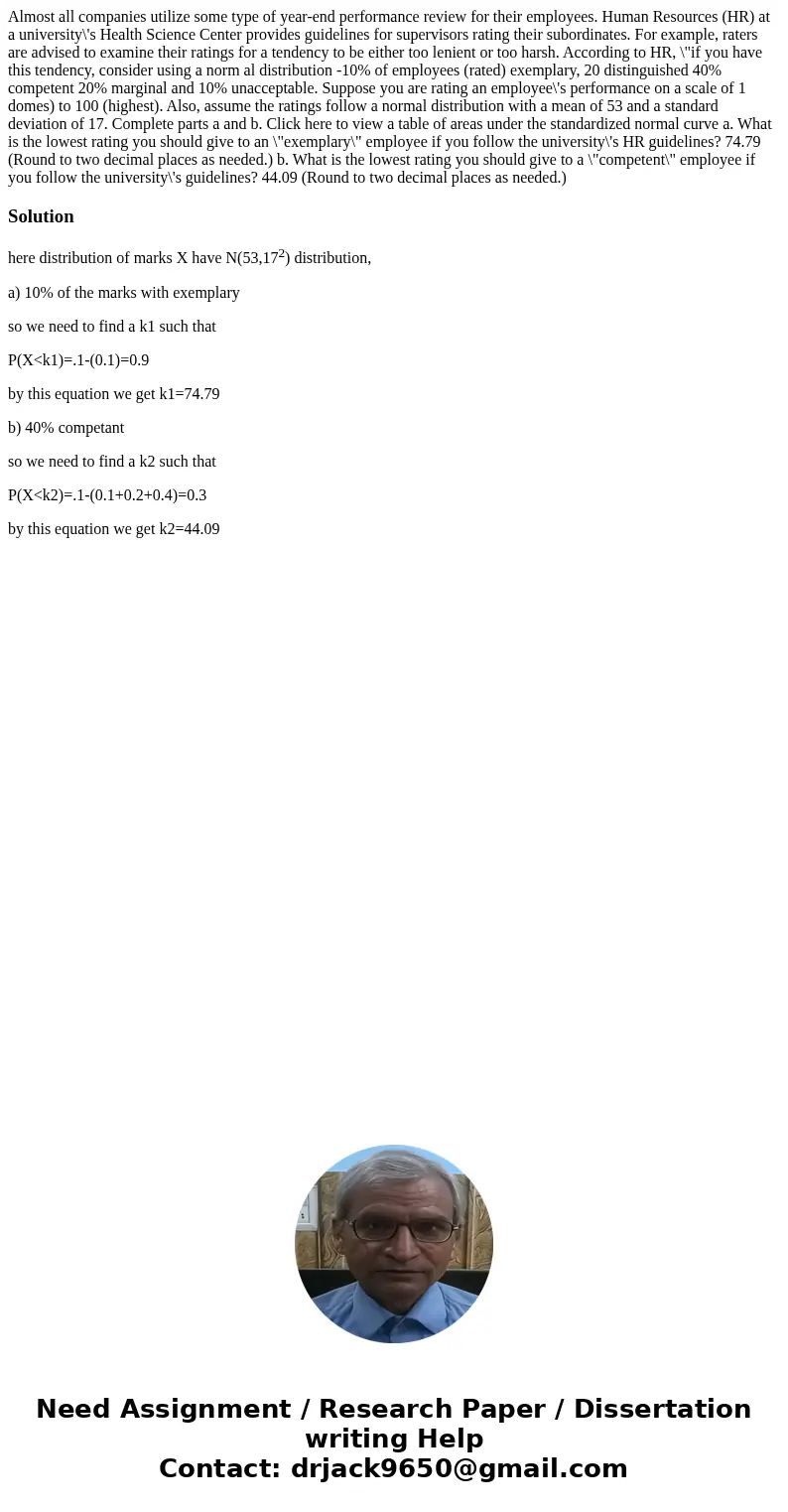Almost all companies utilize some type of yearend performanc
Almost all companies utilize some type of year-end performance review for their employees. Human Resources (HR) at a university\'s Health Science Center provides guidelines for supervisors rating their subordinates. For example, raters are advised to examine their ratings for a tendency to be either too lenient or too harsh. According to HR, \"if you have this tendency, consider using a norm al distribution -10% of employees (rated) exemplary, 20 distinguished 40% competent 20% marginal and 10% unacceptable. Suppose you are rating an employee\'s performance on a scale of 1 domes) to 100 (highest). Also, assume the ratings follow a normal distribution with a mean of 53 and a standard deviation of 17. Complete parts a and b. Click here to view a table of areas under the standardized normal curve a. What is the lowest rating you should give to an \"exemplary\" employee if you follow the university\'s HR guidelines? 74.79 (Round to two decimal places as needed.) b. What is the lowest rating you should give to a \"competent\" employee if you follow the university\'s guidelines? 44.09 (Round to two decimal places as needed.) 
Solution
here distribution of marks X have N(53,172) distribution,
a) 10% of the marks with exemplary
so we need to find a k1 such that
P(X<k1)=.1-(0.1)=0.9
by this equation we get k1=74.79
b) 40% competant
so we need to find a k2 such that
P(X<k2)=.1-(0.1+0.2+0.4)=0.3
by this equation we get k2=44.09

 Homework Sourse
Homework Sourse